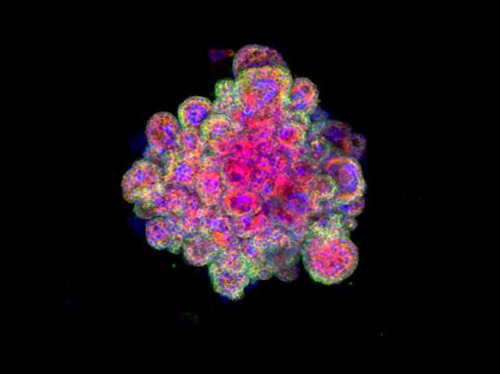
Mini Mom
Over recent years there’s been an explosion of organoids – three-dimensional miniature organs grown in the lab, which mimic many of the properties of the tissue they originally came from and are a better model for human biology than cells growing in a flat plastic dish. So far organoids have been grown from brain, stomach, kidney, gut and more, and now there’s a new kid on the organoid block. This cluster of brightly-coloured blobs is a ‘mini-placenta’, more formally known as a trophoblast organoid, grown from cells isolated from human placenta. It’s very difficult to study the earliest interactions between a human foetus and its placenta for obvious technical and ethical reasons, but animal placentas aren’t similar enough to our own species. These new organoids will provide vital insights into how the placenta grows and what happens when it fails, leading to miscarriage or other serious problems for mother and child.
Written by Kat Arney
- Image by the Centre for Trophoblast Research, University of Cambridge, Cambridge, UK
- University of Cambridge, Cambridge, UK
- Image copyright held by the original authors
- Research published in Nature, November 2018
You can also follow BPoD on Instagram, Twitter and Facebook
Archive link





Комментариев нет:
Отправить комментарий